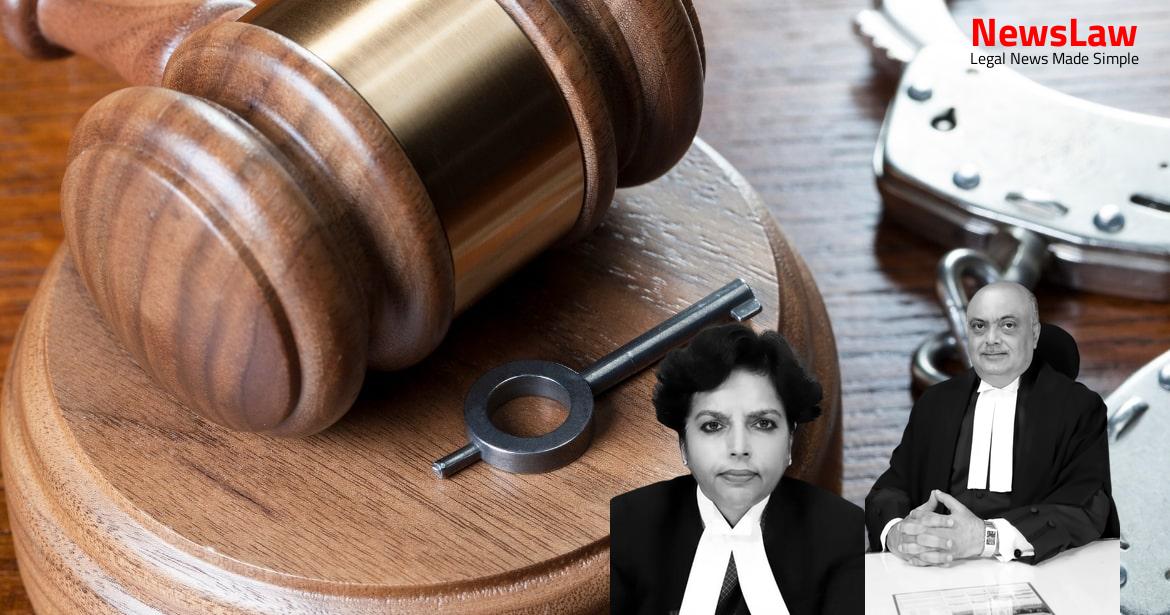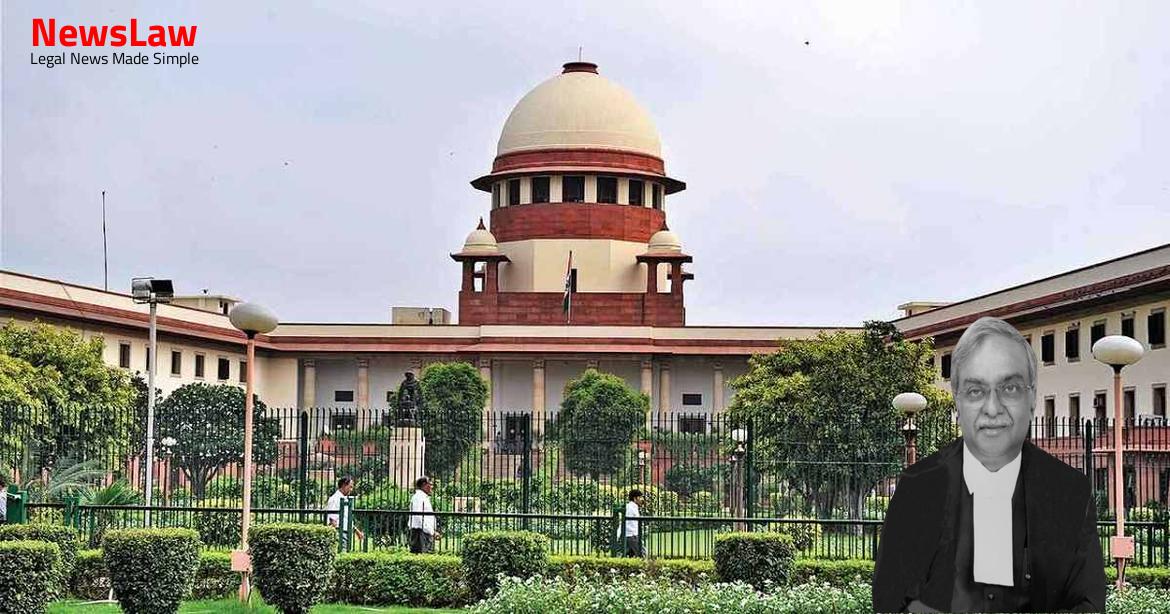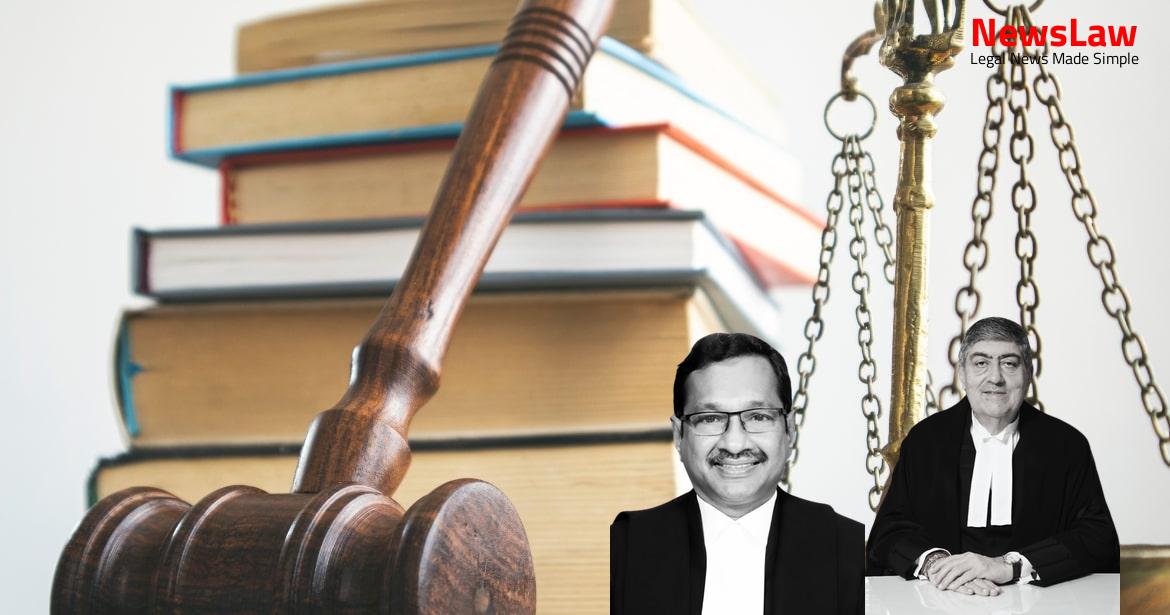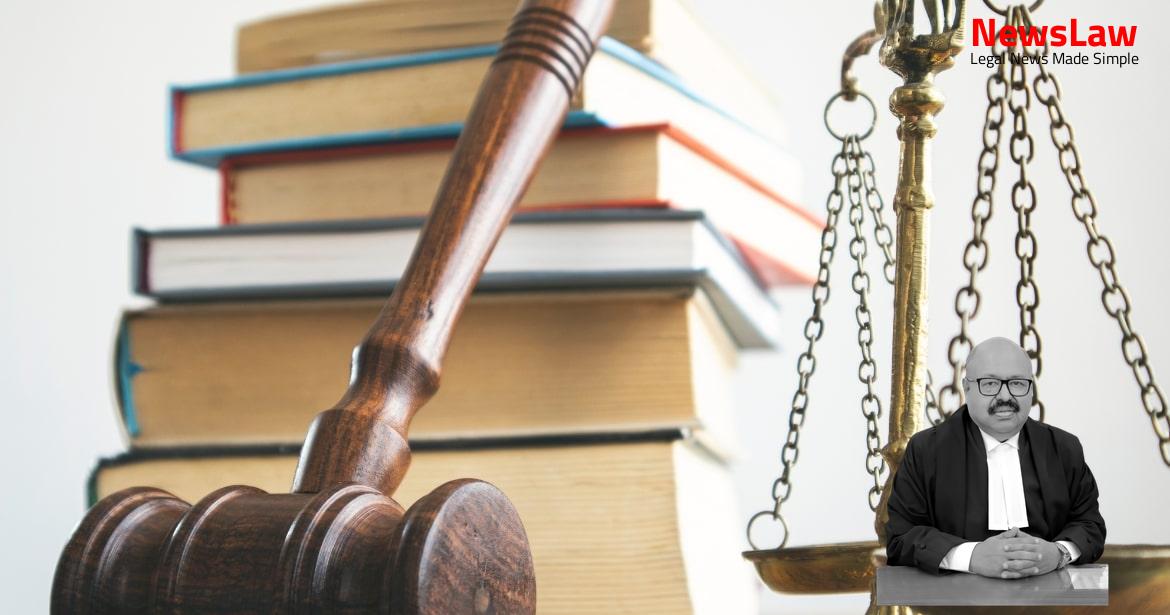In the case of police excesses, the High Court of Bombay, Aurangabad addressed the petition filed by the Somnath against The State of Maharashtra. Allegations of ill-treatment and abuse of authority were brought forward by the appellant. The Court’s decision and the outcome of the case shed light on the importance of police accountability and respecting the legal rights of individuals.
Facts
- The High Court partly allowed the writ petition filed by the appellant.
- C.P. Kakade, Police Inspector, Police Station, Paithan (Respondent no.2) was directed to pay Rs.75,000 from his own pocket to the appellant.
- The Impugned Judgment was passed on 08.10.2018 by the High Court of Bombay, Bench at Aurangabad.
- The appellant was arrested on 14.06.2015 based on CCTV footage showing his involvement in a crime
- The appellant approached the High Court seeking departmental inquiry and compensation
- Allegations of ill-treatment including being paraded half-naked were made against the respondent no.2
- Various complaints and inquiries were initiated regarding the treatment of the appellant by the police
- The Special Inspector General of Police imposed a punishment of “strict warning” on C.P. Kakade, Police Inspector after inquiry
- The appellant was finally released on 20.06.2015
Also Read: RKK vs. ACK: Dispute Over Family Properties
Arguments
- The incident in question, as per learned counsel for the petitioner, is false and intended to demoralize the police
- The petitioner, being a habitual offender, is alleged to have lodged a false complaint after the prescribed time under the Police Act
- The counsel for the petitioner argues that it would be unjust if the respondent is let off with just a ‘strict warning’ for the abuse of authority
- The conduct of the respondent, as argued by the petitioner’s counsel, goes against the guidelines laid down by the Supreme Court in certain cases regarding the treatment of detainees in custody
- The argument is made that the protection provided to a police officer under Section 161 of the Police Act, should not be enforced strictly in cases where the complainant belongs to a weaker section and lacks the means to pursue prosecution
- The petitioner’s counsel contends that the respondent has been let off without effective punishment, as ‘strict warning’ is not substantial enough given the severity of the respondent’s conduct
Also Read: Territorial Jurisdiction in Power of Attorney Case
Analysis
- Respondent no.2 committed excesses against the appellant.
- Enquiry by the Commission and the High Court confirmed the excesses.
- Court strongly denounces the high-handed actions of respondent no.2.
- Respondent no.2 abused his official position.
- Respondent no.2 has superannuated and made a payment of Rs. 1,00,000/- to the appellant from his own pocket.
- Appellant accepted the payment of Rs. 1,00,000/- and Rs. 25,000/- ordered by the Commission.
- The matter requires a final resolution.
- The scenario in Delhi Judicial Service Association v State of Gujarat, (1991) 4 SCC 406 prompted the Court to address the excessive use of force by the police.
- The Court reiterates the principles and directions in D K Basu case due to ongoing concerns.
- A general direction is given to all police forces and agencies with arrest powers to strictly adhere to Constitutional and statutory safeguards as well as additional guidelines set by the Court during arrests or custody.
- In Bhim Singh, MLA v State of Jammu and Kashmir, (1985) 4 SCC 677 and Sunil Gupta v State of Madhya Pradesh, (1990) 3 SCC 119, the Court emphasized the need for police officers to respect personal liberties.
- The power of the High Court under Article 226 of the Constitution of India to award compensation is affirmed, with reference to Nilabati Behera v State of Orissa, (1993) 2 SCC 746.
Also Read: Unfair Charge Framing: A Legal Analysis
Decision
- The appeal is disposed of by upholding the Impugned Judgment.
- Respondent no.2 is held liable to pay a further sum of Rs.1,00,000/- to the appellant.
- The amount has already been paid by respondent no.2, so no further action is needed.
Case Title: SOMNATH Vs. THE STATE OF MAHARASHTRA (2024 INSC 232)
Case Number: Crl.A. No.-001717-001717 / 2024



